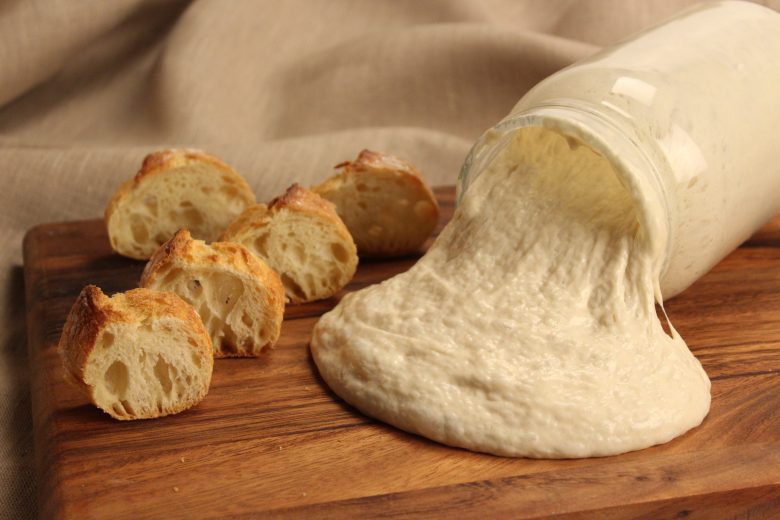Poolish
The use of a poolish is very often emphasized as a value-determining characteristic for high-quality baked goods made from wheat. There are very different reports on the properties of a poolish. It is a necessary requirement for a number of baked goods from France, such as baguettes, country wheat bread or croissants.
In addition, the Poolish process is less geared towards flavor development, rather more towards breaking down the gluten-forming proteins gliadin and glutenin. The high proportion of water in the pre-dough causes the gluten to swell completely, which can optimally develop its properties for a fluffy dough with good balance.
The Poolish percentage is 50% of the total bulk liquid amount. Since the flour, water and yeast are only briefly mixed with the whisk, it is advisable to dissolve the yeast in the water first. After mixing the ingredients, the poolish should stand for 2-4 hours at room temperature and then be stored at 5°C for up to 24 hours.
Cooling is necessary to limit the growth of undesirable microorganisms. However, as the yeast cools down, the activity of the yeast is also limited. Thus, with this type of process, there is insufficient formation of flavor compounds.
Basically, the longer the poolish stands at room temperature, the lower the amount of yeast required. If the poolish ripened at room temperature, the amount of yeast would only be 0.4%.
Recipe:
- 100g Flour
- 100g Water
- 1% Yeast if prepared cold
- 0,1% Yeast if left at room temperature
It is important to stir the flour and water until it is free of lumps. The temperature should be 23-25°C. When selecting the container, make sure that the poolish has room to rise vertically (better dough development and more stable dough structure) and keep it covered.



